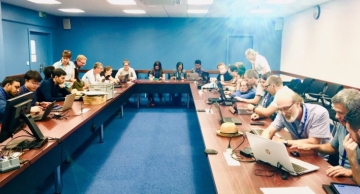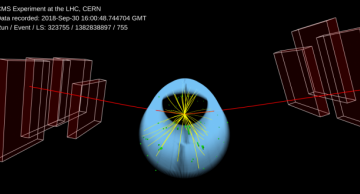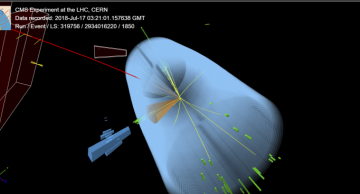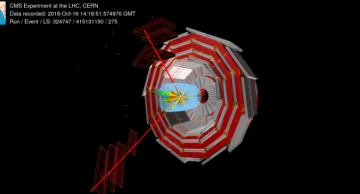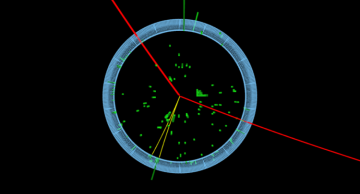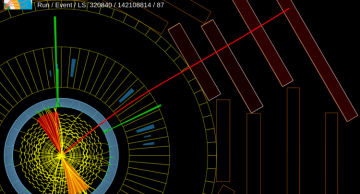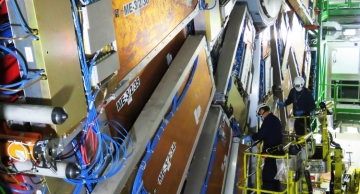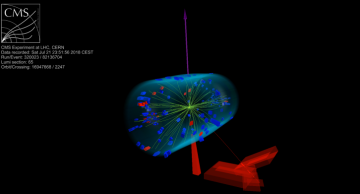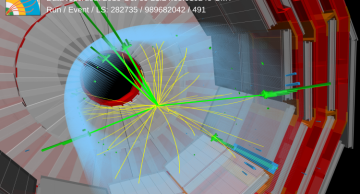The CMS experiment at CERN is happy to announce a new batch of open data from the Large Hadron Collider (LHC), this time encompassing all the data recorded by CMS in 2011. With this release, CMS has brought all proton-proton collision data recorded…
News
|
fbaldass |
Collaboration
|
fblekman |
Physics
A new result released by the CMS Collaboration presents the first evidence of the Higgs boson interacting with the muon.
The standard model of particle physics describes all the known fundamental particles in the Universe. A mystery of the standard…
|
fblekman |
Physics
In 2012 the ATLAS and CMS collaborations discovered a boson with a mass of 125 GeV, i.e. approximately 125 times the mass of the proton, in proton-proton collisions at the CERN LHC. This has marked a milestone in high energy physics, as this…
|
fblekman |
Physics
Measuring the interaction between the Higgs boson and other particles is essential to understand if the particle behaves consistently with predictions. For the International Conference of High Energy Physics 2020, the CMS experiment has released…
|
fblekman |
Physics
A question researchers at the LHC are trying to answer is whether the properties of the Higgs boson are as predicted by the standard model. One way to do this is to look for extremely rare decays of the Higgs boson, as physicists in the CMS…
|
fblekman |
Physics
The Higgs boson is an extremely rare particle. At the Large Hadron Collider (LHC), where bunches of protons collide at more than 99.9999% of the speed of light up to forty million times per second, a Higgs is produced around once per second. The…
|
fbaldass |
Collaboration
IUPAP Young Scientist Prize 2020
The International Union of Pure and Applied Physics (IUPAP) commission honoured CMS member Marco Lucchini with the Young Scientist Prize for 2020, “For his pioneering work in the development of fast crystal sensors…
|
fbaldass |
Detector
The Compact Muon Solenoid (CMS) Muon System is undergoing major upgrades during Long Shutdown 2 (LS2), preparing for the High Luminosity LHC (HL-LHC). The Large Hadron Collider will be upgraded to significantly increase the luminosity (frequency of…
|
fblekman |
Physics
In 2012 the CMS and ATLAS Collaborations announced the discovery of a new particle, that seems mostly consistent with the Higgs boson as predicted by the Standard Model. To understand if that is actually the case, physicists in the CMS…
|
fbaldass |
Collaboration
On Friday 19 June 2020, scientists at the CMS experiment at CERN's Large Hadron Collider submitted their 1,000th paper. This monumental achievement reflects an outstanding contribution to humanity's understanding of the universe — and it's just the…
|
fblekman |
Physics
The CMS collaboration has released the first observation of the simultaneous production of three W or Z bosons in proton-proton collisions at the Large Hadron Collider (LHC). The result is based on the data collected by CMS during 2016–2018 at a…
|
fbaldass |
Collaboration
June is the month of the PhD Thesis Award at CMS, the prize that aims to recognise the best PhD Thesis of the year based on impact, original contribution and clarity.
25 CMS theses were nominated to compete for the CMS PhD Thesis Award for 2019.…

